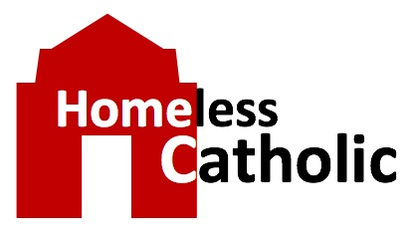Trust in another being
Indeed, there is a yearning in every human to develop faith and trust in another being than oneself. Isn’t an obvious candidate the Supreme Being that created us? Regarding miracles, the “miracle of life”—birth—everyone has experienced.
Image by 99mimimi
Getting past the distractions
By Norm McGraw
https://bible.usccb.org/bible/readings/070123.cfm
Genesis 18:1-15
Matthew 8:5-17
Originally when I began writing a reflection for this week’s readings on July 1st, I thought that this would be an easy assignment. The first reading, from Genesis, tells us about the “miracle” of the pregnancy of Sarah, wife of Abraham, at her advanced age. The gospel reading, from Matthew, tells us about the miracle of the centurion’s servant being cured of paralysis by Jesus.
Focusing my insights on Scripture became difficult this week, though, when I allowed myself to be distracted by world events.
The media presents a vision of our world being in a state of confusion, chaos, and control by evil. Internationally, we’re shown a brutal, seemingly endless war in the Ukraine. Nationally, the media presents a country whose citizens can’t get along with one another. We’re told that the word pride, which used to define one’s accomplishments, now means to celebrate one’s sexual orientation. Moreover, we are asked to honor a group that mocks the Son of God.
When I regained my focus, I realized how important reading Scripture is in my daily life. This week’s readings deal with the important subjects of faith and miracles.
The book of Genesis spends some time detailing God’s relationship with Abraham, beginning with stating His presence—“I am God Almighty” (Genesis 17:1), and then establishing a covenant with Abraham—“Behold, my covenant is with you, and you shall be the father of a multitude of nations” (Genesis 17:4). Then, from Genesis 18:1-15, it chronicles Sarah, wife of Abraham, becoming pregnant and delivering a child at an advanced age. That event seems all but impossible to us. But then anything is possible for God.
After all, if you’re a parent, don’t you believe that the birth of your offspring was a miracle?
Faith is an important component of a miracle. The gospel reading from Matthew (Matthew 8:5-17) is an example of this. It is noteworthy that in this chapter, Matthew focuses on miracles Jesus did, like calming a storm (Mt. 8:23-27) and casting out demons (Mt 8:28-34) as well as curing the centurion’s servant. But in the chapter preceding it, Matthew focuses on the teachings of Jesus, such as the golden rule—“So whatever you wish that others would do to you, do also to them” (Mt. 7:12)—and parables—“Beware of false prophets, who come to you in sheep’s clothing but inwardly are ravenous wolves” (Mt. 7:15).
The centurion’s faith that Jesus would cure his servant was so strong that he stated, “Lord, I am not worthy to have you enter under my roof; only say the word, and my servant will be healed.” His declaration is an example of what our faith should be.
Indeed, there is a yearning in every human to develop faith and trust in another being than oneself. Isn’t an obvious candidate the Supreme Being that created us? Regarding miracles, as I mentioned earlier, the “miracle of life”—birth—everyone has experienced.
So, when you feel rudderless on the sea of life, when everything seems to “get you down,” reading the Bible renews your trust in God and you’ll marvel at His miracles. Recently, Bishop Strickland of East Texas described our faith this way: “We need to be audacious.” In explaining the phrase, he described that our faith should not be attacking or violent but strong and loving.
The responsorial psalm puts it this way: “My spirit rejoices in God, my Savior.”
Taking that path will get us through the storm.
You know, just writing this reflection makes me feel better.

